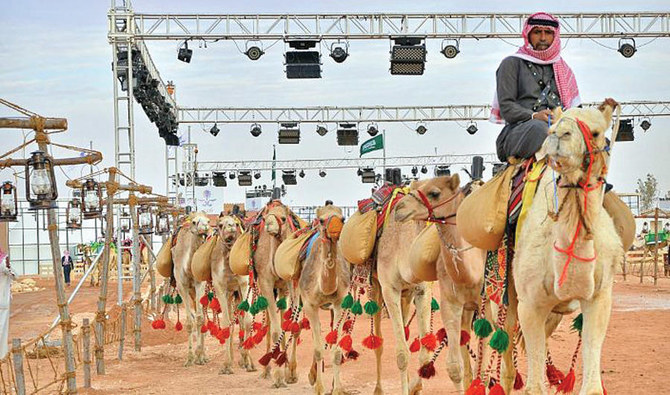What To Know
- Hitherto under the health aspect, the scientists explore the usage of camel products in the health sector as well as the health technology in measuring the quality of camel meat, the storage types of camel breeds, and the genetic map of camel.
- The camel maintenance grant is a new program launched by the Ministry of Culture that aims to bring to light the importance of the camel in the Saudi Arabian cultural, social, and economic context as evidenced by scientific research.
- The grant was announced at the same time as the ALL became aware that the United Nations has declared 2024 as the International Year of Camelids, and Saudi Arabia similarly declared 2024 as the Year of the Camel.
RIYADH: The camel maintenance grant is a new program launched by the Ministry of Culture that aims to bring to light the importance of the camel in the Saudi Arabian cultural, social, and economic context as evidenced by scientific research.
Such grant suggests that research proposals may address camel importance in as many facets as historical, cultural, socio-economic, environmental and health disciplines according to Saudi Press Agency.
The historical component features empiricial comparisons of the importance of camels with between civilizations, historical and ethnographic descriptions of traditions related to camels, and investigations of ways to archive this history.
The cultural has to do with how camels have been described in artwork and in literature. The authors and the researchers are, therefore, exalted to undertake critical as well as literary researches on the participation of camels in Arabic and Saudi texts, aggrandized children’s literature. This field welcomes almost all words and phrases connected with camel and its depiction in the arts, including visual and motion picture art, engraving, or sculptural art.
The social aspect revolves around the identification of the social and cultural importance of camel to the Arab and Islamic world. Areas of focus encompass the meaning and value of the camels within the local culture, social relations, the practices associated with owning a camel, and induced cultural change through holding national camel events at the local and international level.
The economic aspect discusses the exportation and utilization of the Camel and its related products in the economy. Academician can evaluate the application of camel wool and leather in fashion and furniture sectors, compare the social suitability of camel production for business, determine the profit and loss statement due to camel festivals and institutions.
The environmental aspects, on the other hand, would embrace any research on sustainable pasturage for the camel or an evaluation of Carbon dioxide emissions as well as the roles played by camels in sustaining ecosystems across the arid zone.
Hitherto under the health aspect, the scientists explore the usage of camel products in the health sector as well as the health technology in measuring the quality of camel meat, the storage types of camel breeds, and the genetic map of camel.
The grant was announced at the same time as the ALL became aware that the United Nations has declared 2024 as the International Year of Camelids, and Saudi Arabia similarly declared 2024 as the Year of the Camel.
Photo: AN










